
Premium Glass Microbeads: Assorted & Quality Beads
Understanding Glass Microbeads: Industry Trends and Core Applications
In the realm of advanced material science and industrial applications, glass microbeads have emerged as indispensable components, revolutionizing processes across diverse sectors. These spherical particles, typically ranging from microns to millimeters in diameter, are highly valued for their exceptional physical and chemical properties, including consistent sphericity, inertness, high strength, and optical clarity. Current industry trends highlight a significant demand surge driven by expanding applications in surface finishing, road safety, medical technology, and composite materials. Innovations are continuously pushing the boundaries, with a focus on developing specialized coatings, precise size distributions, and enhanced material compositions to meet increasingly stringent performance requirements. The market is also witnessing a shift towards more sustainable manufacturing practices and the integration of recycled content, aligning with global environmental objectives. As industries prioritize efficiency, precision, and environmental responsibility, the role of these meticulously engineered particles, including various forms of assorted glass beads and even decorative glass rondelle beads (in their industrial counterparts), becomes ever more critical. Their versatility ensures they remain at the forefront of material innovation, enabling superior performance and economic benefits in critical industrial processes.
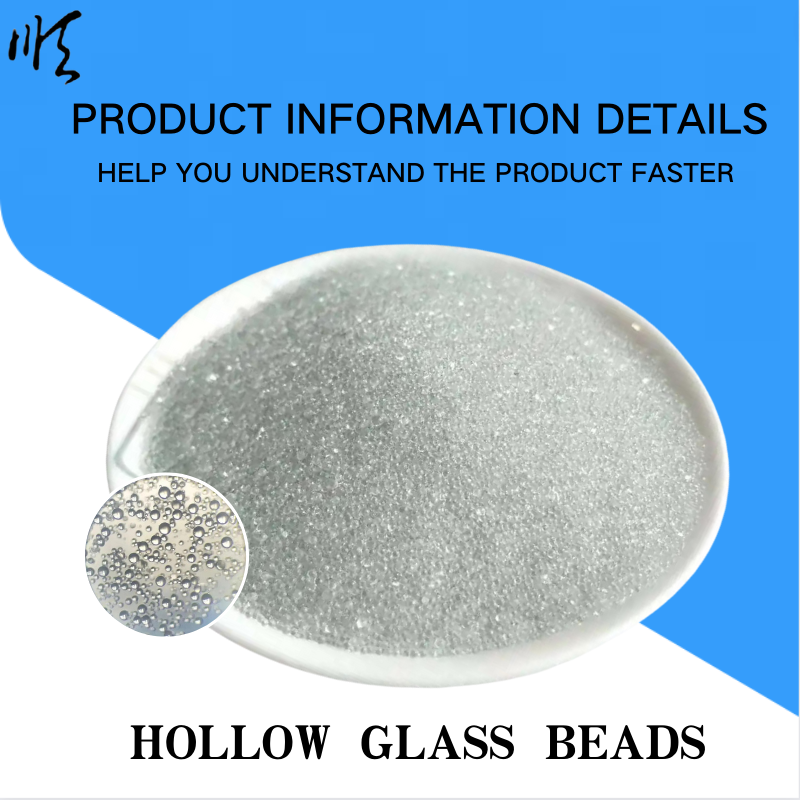
The demand for quality glass beads is particularly robust in sectors requiring high-precision surface preparation, such as aerospace, automotive, and general manufacturing. Their unique ability to clean, deburr, peen, and finish surfaces without causing dimensional change or material contamination makes them a preferred choice over harsher abrasive media. Furthermore, their reflective properties are critical for safety applications like road marking paints, where they significantly enhance visibility, especially in low-light conditions. The ongoing research and development into advanced functionalities, such as those with modified surface chemistries for improved adhesion in composites or specific refractive indices for optical applications, underscore the dynamic nature of this market. Emerging applications in additive manufacturing and microfluidics also signify the broadening horizons for these versatile spheres. Understanding these prevailing trends and the fundamental attributes of glass microbeads is essential for businesses seeking optimal solutions for their operational needs, ensuring that they select products that not only meet current demands but are also adaptable to future technological advancements.
The Precision Manufacturing Process of Glass Microbeads
The production of high-performance glass microbeads involves a sophisticated, multi-stage manufacturing process designed to ensure consistent quality, precise sizing, and optimal physical properties. It begins with the selection of high-grade raw materials, primarily virgin glass cullet, which is meticulously cleaned and sorted to remove impurities. This material is then fed into a high-temperature furnace, where it undergoes fusion, melting down into a molten state. The molten glass is subsequently atomized or subjected to a specialized process involving high-velocity air or steam, which disperses it into fine droplets. These droplets, propelled by surface tension, naturally form perfect spheres as they cool rapidly during freefall in a controlled environment. This unique spheroidization process, often requiring precise temperature and airflow management, is crucial for achieving the characteristic roundness and smooth surface finish of quality glass beads. Unlike traditional casting or CNC machining, which are more common for larger components, the production of microbeads relies on advanced thermal shaping techniques to achieve their microscopic perfection.
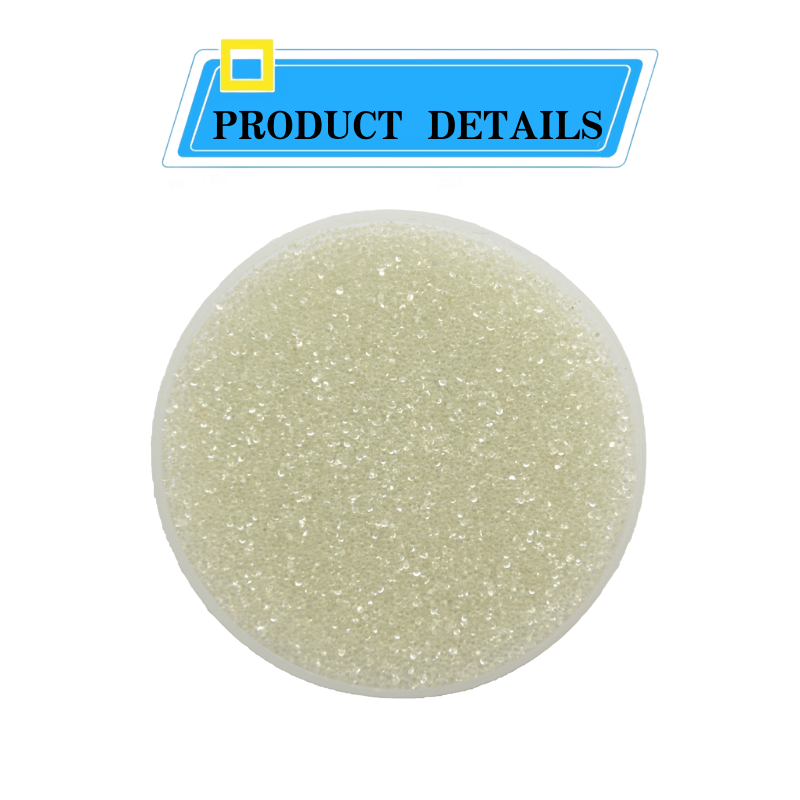
Following the spheroidization and cooling, the raw assorted glass beads undergo a rigorous classification and sizing process. This typically involves advanced sieving, air classification, or optical sorting techniques to separate the beads into precise size fractions, ensuring uniform particle distribution critical for specific applications. Each batch is then subjected to stringent quality control measures. These include detailed analyses for sphericity (often requiring precision optical instruments), crush strength, chemical composition, refractive index, and freedom from defects or foreign matter. Compliance with international standards such as ISO (International Organization for Standardization) for quality management and environmental performance, and ANSI (American National Standards Institute) for specific product specifications, is paramount. For instance, specific ASTM standards might govern the performance of glass beads in road marking applications or as abrasive media. This meticulous manufacturing and inspection regimen ensures the longevity and consistent performance of glass microbeads across demanding industrial environments, contributing to their extended usage life and reliability in sectors like petrochemical processing, metallurgy, and water treatment where durability and resistance to harsh conditions are essential.
Technical Parameters and Specifications of Precision Glass Beads
The performance of glass microbeads in any application is fundamentally determined by their precise technical specifications. For products such as the "Round glass beads polishing sandblasting derusting special," critical parameters ensure optimal abrasive action, surface finish quality, and material integrity. Key specifications include size distribution, which dictates the fineness of the abrasive action and surface profile; hardness, typically measured on the Mohs scale, influencing their ability to clean and peen without embedding; specific gravity, affecting their flow characteristics and separation from media; and chemical inertness, ensuring no contamination of the treated substrate. Sphericity and roundness are also paramount, as highly spherical beads provide uniform impact and longer operational life, reducing media breakdown and dust generation. These precise characteristics differentiate high-performance quality glass beads from less refined alternatives, making them ideal for delicate yet effective surface treatments.
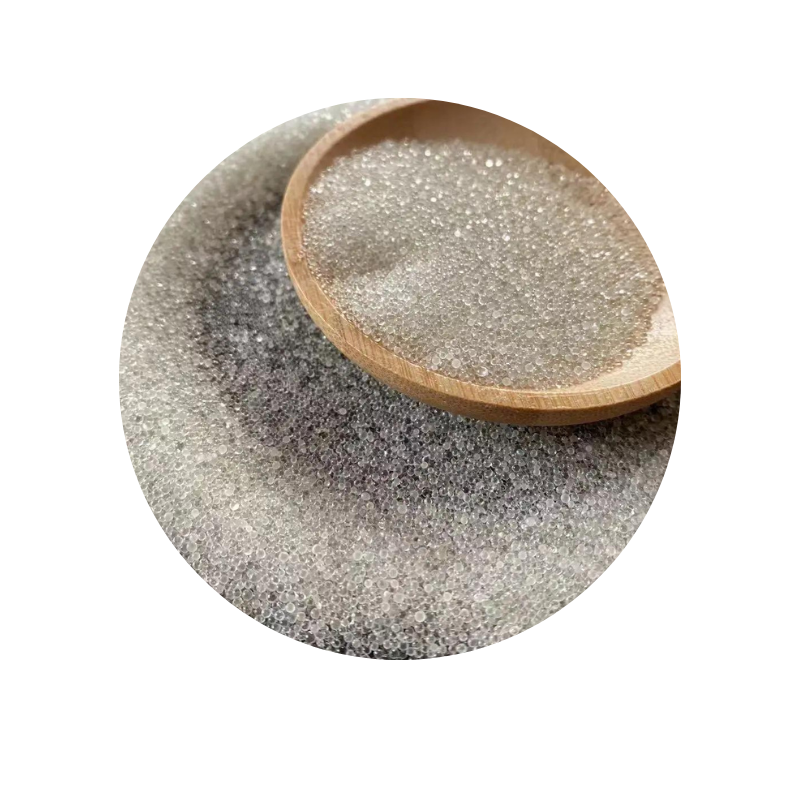
To provide a comprehensive understanding, the table below outlines typical technical parameters for premium glass microbeads used in demanding industrial applications, offering a benchmark for assessing product suitability. This data demonstrates the precision engineering involved and highlights why these beads are superior for specific tasks. For comparison, while sand or crushed abrasives might be cheaper, they often cause material removal, surface damage, and significant dust, leading to higher operational costs due to re-work and waste. Steel shot, while durable, can lead to ferrous contamination. Glass microbeads, however, offer a non-contaminating, environmentally friendly alternative that maintains the integrity of the base material while delivering a superior finish. Their consistent properties ensure repeatable results, crucial for high-volume manufacturing and quality-critical operations, making them an economically sound and technically advanced choice for numerous industrial processes, especially for achieving anti-corrosion properties and surface cleanliness without compromising material strength.
| Parameter | Typical Value Range (Premium Grade) | Significance for Performance |
|---|---|---|
| Size Distribution (Sieve Analysis) | 100-850 microns (μm), specific to grade | Determines surface profile, finish texture, and cleaning efficiency. Precision sizing ensures consistent results. |
| Hardness (Mohs Scale) | 5.5 - 6.5 | Indicates abrasion resistance and ability to clean/peen without material removal or embedding. |
| Specific Gravity | 2.4 - 2.6 g/cm³ | Affects media flow, settling rates in slurries, and blast machine efficiency. |
| Sphericity | ≥ 90% true spheres | Ensures uniform impact, longer bead life, and less dust; critical for peening and fine finishing. |
| Refractive Index (for reflective applications) | 1.50 - 1.52 (for standard beads) | Crucial for retro-reflectivity in road markings and signage for enhanced visibility. |
| Chemical Composition | Primarily SiO₂ (approx. 70-75%), Na₂O, CaO, MgO, Al₂O₃ | Determines inertness, resistance to acids/alkalis, and overall stability in various environments. |
Diverse Application Scenarios and Technical Advantages of Glass Microbeads
The versatility of glass microbeads is evident in their widespread adoption across a multitude of industrial sectors, each leveraging specific technical advantages. In surface finishing, particularly for polishing, sandblasting, and derusting, they offer a non-contaminating, gentle abrasive action that cleans and peens without removing base material. This is crucial for delicate components or when maintaining precise tolerances is paramount. For example, in the automotive industry, quality glass beads are used for peening critical engine components to enhance fatigue life, while in aerospace, they ensure uniform surface finishes on turbine blades. Their chemical inertness makes them ideal for applications in the petrochemical sector for cleaning reactor vessels and pipes, preventing corrosive residues. In the metallurgy industry, they are indispensable for deburring and polishing precision metal parts, ensuring both aesthetic appeal and functional integrity.
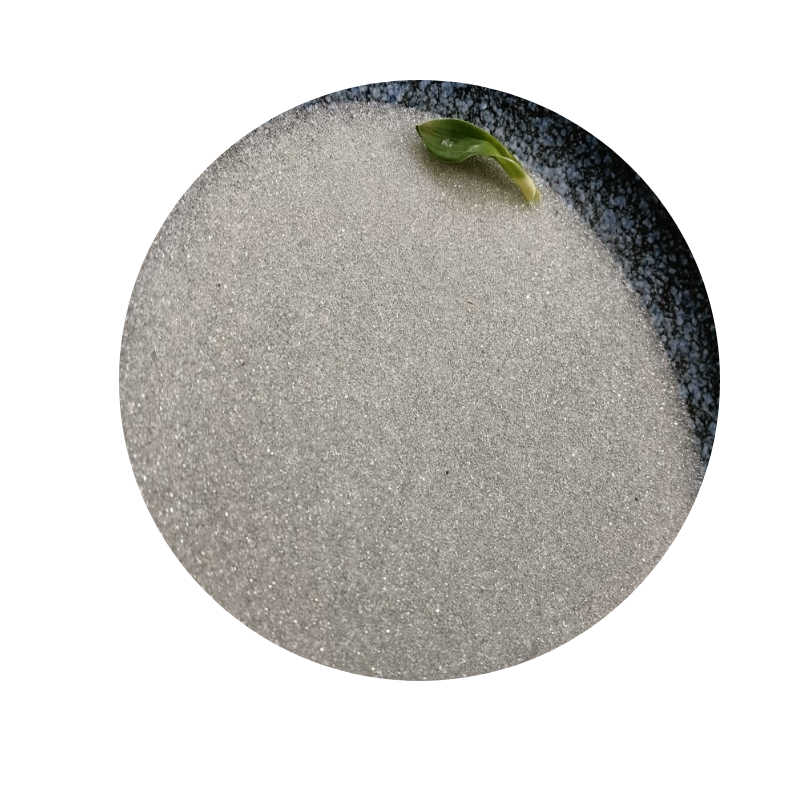
Beyond surface treatment, glass microbeads play a vital role in specialized filtration systems, acting as robust filter media in water treatment and chemical processing to remove particulate matter effectively. In traffic and road safety, their retro-reflective properties are unparalleled; when incorporated into road marking paints, they reflect vehicle headlights back to the driver, significantly enhancing night-time visibility and safety. This attribute is also critical for reflective signage and high-visibility apparel. Furthermore, as fillers and extenders in composite materials, they improve dimensional stability, reduce shrinkage, and enhance flow characteristics without significantly increasing weight, benefiting industries from construction to sporting goods. The energy efficiency derived from their non-aggressive cleaning methods, which often reduce the need for subsequent processing steps, and their inherent corrosion resistance contribute to lower operational costs and extended equipment lifespan, showcasing their multifaceted benefits across industries like power generation, infrastructure, and even healthcare for specific applications of sterile assorted glass beads.
Customization Solutions and Manufacturer Insights for Glass Microbeads
While standard grades of glass microbeads cater to a broad range of applications, many specialized industrial requirements necessitate bespoke solutions. Reputable manufacturers distinguish themselves through their ability to offer comprehensive customization, tailoring product specifications to meet unique challenges. This can involve precise control over particle size distribution, producing extremely fine or coarse grades to achieve specific surface profiles or flow characteristics. Customization also extends to chemical composition, where minor alterations can enhance properties like acid or alkali resistance for use in highly corrosive environments, or modify refractive indices for specialized optical applications. Surface coatings, for instance, can be applied to improve adhesion in polymer composites or to confer hydrophobic properties, further expanding the utility of these versatile spheres. Engaging with a manufacturer that possesses robust R&D capabilities and flexible production lines is crucial for developing these specialized quality glass beads, ensuring optimal performance for highly specific processes.

When selecting a supplier for glass microbeads, B2B decision-makers should consider factors beyond just price. A truly authoritative manufacturer will demonstrate not only a deep understanding of material science and production precision but also a commitment to rigorous quality control, evidenced by certifications like ISO 9001 and ISO 14001, and compliance with industry-specific standards such as ASTM for abrasive media or road marking materials. Their service longevity in the industry, significant production capacity, and a proven track record of successful partnerships with leading enterprises are strong indicators of reliability and expertise. Furthermore, access to comprehensive technical support, including application engineering assistance and analytical services, ensures that clients receive tailored advice and solutions. This holistic approach to product and service delivery, from initial consultation to post-sale support, builds trust and ensures long-term value, setting apart genuine industry leaders in the provision of highly specialized assorted glass beads for critical industrial processes.
Case Studies and Real-World Applications of Glass Microbeads
The practical utility and technical advantages of glass microbeads are best illustrated through real-world application cases, demonstrating their tangible benefits for industrial clients. In an instance involving a leading automotive manufacturer, transitioning from aluminum oxide to quality glass beads for shot peening engine transmission components resulted in a 30% increase in fatigue life and a remarkable 15% reduction in media consumption due to the beads' superior durability and spherical integrity. The non-contaminating nature of glass beads also eliminated subsequent cleaning steps, contributing to a 5% overall reduction in processing time. Another compelling case involved a major infrastructure project requiring enhanced road marking durability. By incorporating specialized retro-reflective glass microbeads with improved embedment characteristics into the thermoplastic paint, the lifespan of the markings increased by 25% while maintaining excellent night-time visibility for over five years, significantly reducing maintenance frequency and costs. These examples highlight how precision-engineered glass microbeads deliver measurable improvements in efficiency, longevity, and performance.
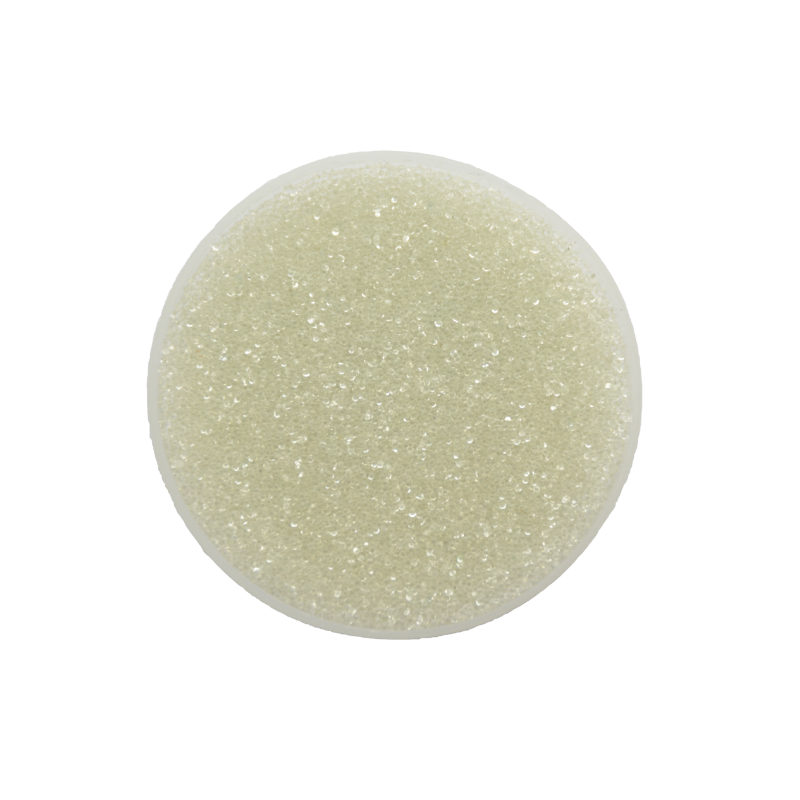
A third significant application involves the use of glass microbeads in the surface preparation of medical implants. In this highly sensitive sector, strict regulations demand materials that are biologically inert and provide consistent, non-abrasive surface finishes. A medical device company utilizing our beads for polishing titanium implants achieved an exceptionally smooth, uniform surface that significantly improved biocompatibility and reduced the risk of patient complications. The non-ferrous, non-siliceous nature of the beads ensured zero contamination, meeting stringent FDA (Food and Drug Administration) requirements for medical-grade materials. Such results underscore the critical role of superior glass microbeads in achieving both performance excellence and regulatory compliance. These case studies collectively serve as robust evidence of the expertise and experience embedded in the design and application of industrial glass beads, reinforcing their authoritative standing as a preferred material for diverse, high-stakes operations across global industries.
Trust and Reliability: FAQ, Delivery, Warranty, and Customer Support
Building trust in the B2B sector for specialized materials like glass microbeads hinges on transparency, reliable service, and unwavering commitment to customer satisfaction. We understand that prospective clients often have detailed queries, and a comprehensive FAQ section is designed to address common questions regarding product specifications, application methods, and environmental compliance. For instance, frequently asked questions might cover topics such as: "What is the recommended size of glass microbeads for aerospace peening?" or "Are these beads recyclable?" and "What safety precautions are necessary during sandblasting with glass beads?" Our commitment extends to providing clear, concise answers that empower clients with the necessary information to make informed decisions. Furthermore, our robust logistics network ensures efficient and timely delivery of quality glass beads, regardless of geographic location or order volume. We maintain strong partnerships with global shipping providers to guarantee adherence to agreed-upon delivery schedules, minimizing operational downtime for our clients.
Our dedication to quality is underscored by a comprehensive warranty program that covers material integrity and product performance against manufacturing defects. This provides our clients with peace of mind, knowing that their investment in assorted glass beads is protected. Our quality assurance processes are meticulously designed, from raw material sourcing to final product inspection, to meet and exceed industry standards, thereby guaranteeing the highest levels of product reliability. Beyond sales, our technical customer support team comprises experienced engineers and material scientists who offer expert advice, troubleshooting assistance, and application guidance. This proactive support ensures that clients can maximize the benefits of our glass microbeads, optimizing their processes and achieving desired outcomes. We are committed to fostering long-term relationships built on mutual trust and consistent performance, solidifying our position as a dependable partner in the advanced materials industry.
Conclusion and Authoritative References
The detailed exploration of glass microbeads underscores their unparalleled value as a highly versatile and precision-engineered material. From their meticulous manufacturing process, ensuring consistent quality and performance, to their diverse applications across critical industries such as automotive, aerospace, petrochemical, and road safety, these tiny spheres deliver significant technical advantages. Their ability to provide superior surface finishes, enhance material fatigue life, ensure chemical inertness, and improve safety through retro-reflectivity makes them indispensable. The commitment to delivering quality glass beads, supported by robust technical parameters, tailored customization solutions, and a strong emphasis on trust through transparent service and dedicated customer support, positions them as a strategic asset for any industrial operation aiming for efficiency, precision, and sustainability. As industries evolve, the continuous innovation in the production and application of glass microbeads will undoubtedly solidify their foundational role in advanced material solutions worldwide.
Authoritative References
- ASTM International. (Various Standards). Standards for Abrasive Blasting Media and Road Marking Materials.
- International Organization for Standardization (ISO). (Various Standards). Quality Management Systems and Environmental Management Systems.
- Mohs, F. (1812). Grundriss der Mineralogie. (On mineral hardness scale).
- ASM International. (Various Handbooks). Surface Engineering, Heat Treating, and Materials Properties.
- Transportation Research Board. (Various Publications). Highway Safety and Roadway Design.
- American National Standards Institute (ANSI). (Various Standards). Safety and Performance Standards for Industrial Equipment and Materials.
Share
-
Premium Glass Microbeads: Assorted & Quality BeadsNewsAug.18,2025
-
Premium Pine Bark Mulch: Natural Weed Control & Landscape BeautyNewsAug.17,2025
-
Premium Quartz Sand: Industrial & Ground SolutionsNewsAug.16,2025
-
Natural Medical Stone: Durable Grey Stone Cookware & PansNewsAug.15,2025
-
Premium Bentonite Cat Litter: Superior Clumping & Odor ControlNewsAug.14,2025
-
Premium Mica Crystals: Natural Beauty & Unique ShineNewsAug.13,2025






